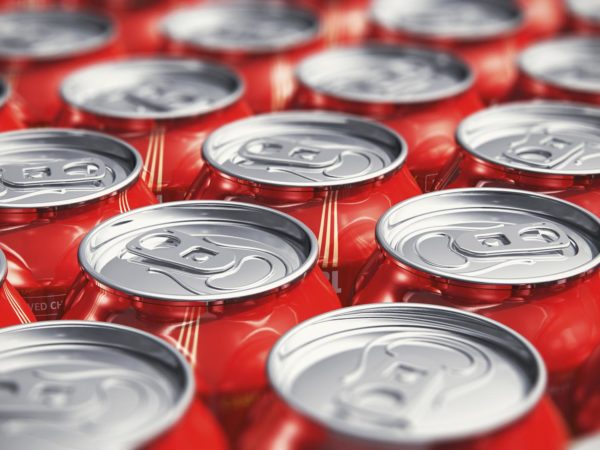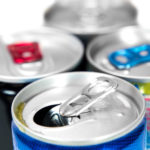Can Caffeine Kill?
I’ve been consuming energy drinks regularly for a few years, but I’m worried about the reports that the caffeine in these drinks has been associated with some deaths and hospitalizations. Can you tell me how much caffeine is too much?
Andrew Weil, M.D. | October 26, 2012

Concern about the ill effects of caffeine-laden energy drinks has been increasing in the past few years and even made headlines in 2012. In that year, parents of a 14-year-old girl who died after drinking two 24-ounce Monster Energy drinks, each containing 240 mg of caffeine, filed a lawsuit against the manufacturer. The death was attributed to cardiac arrhythmia (irregular heartbeat) due to caffeine toxicity. The FDA is investigating this case, as well as four other deaths and a non-fatal heart attack linked to consumption of energy drinks. The New York Times reported that the teenager had Ehlers-Danlos syndrome, a genetic disorder that can affect the body’s connective tissue, including blood vessels. The Times article said that the teen had not been advised by her physician to restrict her physical activities or her caffeine consumption. Data collected by the federal Substance Abuse and Mental Health Services Administration (SAMHSA), suggest that reported problems apparently related to energy drinks are widespread. In November 2011, SAMHSA published a report indicating that between 2005 and 2009 emergency room visits reportedly involving energy drinks increased 10-fold to more than 13,000 annually and that two-thirds of these cases were classified as adverse reactions to caffeine. The drinks are promoted to the youth market for increasing energy and stamina, weight loss, and enhanced physical and mental performance. According to the agency, sales increased by 240 percent from 2004 to 2009. The report also states that consumption of energy drinks is associated with risky behavior such as unprotected sex, fighting, smoking, drinking alcohol and misusing prescription drugs. In addition, the American Psychiatric Association’s Diagnostic and Statistical Manual (DSM) includes four separate mental health conditions linked to caffeine consumption. One of these, “caffeine intoxication,” can occur as a result of the “recent consumption” of more than 250 mg of caffeine. Symptoms include any five of the following: restlessness, nervousness, excitement, insomnia, flushed face, increased urination, gastrointestinal disturbance, muscle twitching, rambling flow of thought and speech, tachycardia (rapid heartbeat) or cardiac arrhythmia, periods of inexhaustibility (where a person seems unable to use up all their energy) and psychomotor agitation (repeated activity such as pacing or handwringing). Caffeine intoxication can lead to “clinically significant distress or impairment in social, occupational, or other important areas of functioning,” according to the DSM. Some people are susceptible to caffeine-related symptoms such as feeling jittery or trouble sleeping when they ingest much less than 250 mg. Individuals who regularly consume drinks containing caffeine usually have a sense of how much is too much for them and tailor their consumption accordingly. But judging from the increase in ER visits for energy-drink-related symptoms, many young people don’t know their limits – and certainly are not aware of the huge doses of caffeine they may be ingesting when they down two or more of these drinks. That’s because energy drinks don’t always divulge caffeine content, and even when an amount is listed on a label, it may not be accurate, according to Consumer Reports magazine. A study by the magazine determined that 11 of the 27 most popular energy drinks in the U.S. did not specify caffeine content, and of 16 drinks that did display an amount, five had more per serving than was listed. The average excess found by the magazine: more than 20 percent. It appears that other parts of the world are now taking notice. On October 23, 2012, the New York Times reported that several countries “are reining in sales of energy drinks, pointing to the risks of excessive caffeine consumption by teenagers and even some adults. By year’s end, Canada will cap caffeine levels in these products like Monster Energy, Red Bull and Rockstar. Also countries like Mexico, France and India have or are considering steps including taxing the drinks more heavily to discourage their use.” Fortunately, fatal doses of caffeine are rare. The amount needed to kill an adult human depends on individual sensitivity but is estimated at 150 to 200 mg of caffeine per kilogram of body mass, which would add up to approximately 80 to 100 cups of coffee, or 50 to 70 energy drinks. Andrew Weil, M.D.











